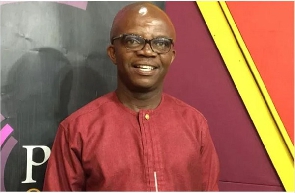The Member of Parliament (MP) for Nhyiaeso, Dr. Stephen Amoah, has underscored the need for the public to be educated on bonds, Treasury bills, shares, and everything about the capital market.
He noticed that people invest their money in these without really understanding what they are doing, hence the call.
The advice came after some individuals, organizations, and corporate bodies opposed the Domestic Debt Exchange Programme, proposed by the government.
The government last Monday launched the Domestic Debt Exchange programme which was first announced in the 2023 budget.
The programme involves the swapping of existing domestic bonds with longer-dated bonds that will take between five and 14 years to mature in 2037.
This means the extension of the repayment period for the bonds issued and held locally to allow for a staggered and phased payment of both the interest and the principal.
The annual coupon on all of these new bonds will be set at zero per cent in 2023, five per cent in 2024 and 10 per cent from 2025 until maturity.
It does not affect treasury bill holders but institutional and individual bondholders registered in the Central Securities Depository (CSD).
However, a couple of hours after the announcement, a number of stakeholders and institutions raised concerns about the arrangement and sought various clarifications, with almost all the groups claiming they had not been consulted.
While the Minority in Parliament said the form and the structure of the exercise were counter-productive and would, therefore, not accept it, the Trades Union Congress (TUC) indicated that it was concerned about the programme’s potential negative impact on workers’ pensions.
A financial advisory firm, Deloitte Ghana, on the other hand, sought some clarity on whether investors would have the option of immediately liquidating their investments or be forced to roll over onto the new programme.
“The issue in this country is that many people are not well educated on bonds, stocks, treasury bills, and other aspects of the capital market. People do not really understand it, and many people, unlike in the Western World, do not have financial managers or advisers who advise them on their money. Many people with money in the Western world have financial advisers who advise them on what to do with their money, where to invest, and the risks involved, but in Ghana, people are not even willing to pay for these services, so many people do not understand these things.”
“A lot of people don’t know that even before you send your money to the capital market, the fiscal investment session, which is land, labor, and operations, has no opportunity or the opportunities there are bigger than the capital market, so I will not even invest my money there,” he added, “and I think that is what is creating the confusion.”
Reacting to those who are opposing the Domestic Debt Exchange programme, he said although it will inconvenience the people in the interim, in the long term, it will benefit the whole country.
Meanwhile, he also underscored the need for the government to meet with all stakeholders to explain things better to them, saying the government must do that if it has not done that already.
Business News of Thursday, 8 December 2022
Source: atinkaonline.com

















